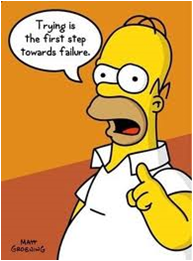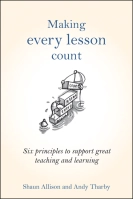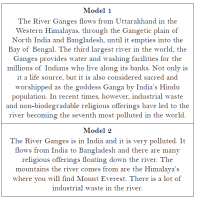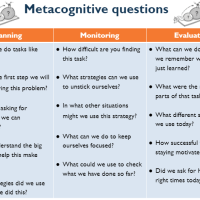I’ve written before (lots!) about growth mindset and why I think it’s important. I think we need to be careful though. If it’s really going to make a difference, we need to think very deeply about what it really means as teachers and leaders to be supporting a growth mindset in our schools. Posters, assemblies and pictures are fine – but the way we will really make a difference to our students, in terms of developing their mindset, is the way we interact with them on a day to day basis – in particular, in the things we say to them.
 To me, Tom’s description above nails it. The problem is though, the more you think about mindset, the more you start to question the way we talk to students and the way in which schools operate. A few examples follow (most of which I have used at some point in my career, but am now trying to eliminate!):
To me, Tom’s description above nails it. The problem is though, the more you think about mindset, the more you start to question the way we talk to students and the way in which schools operate. A few examples follow (most of which I have used at some point in my career, but am now trying to eliminate!):
 Academic potential is a strange idea – because how do we know what it is? If we believe the basic premise of mindset theory – that talent and ability is not fixed and can be developed – how can we say that someone has fulfilled their potential? This suggests a pre-programmed limit to what our students can achieve.
Academic potential is a strange idea – because how do we know what it is? If we believe the basic premise of mindset theory – that talent and ability is not fixed and can be developed – how can we say that someone has fulfilled their potential? This suggests a pre-programmed limit to what our students can achieve.
For years, learning objectives up and down the country have been shaped around ‘all…most..some’ This is potentially really dangerous I think, as it lowers our expectations of what students can achieve. Much better to have a single, challenging objective and use questioning, feedback and other means of support to encourage all students to aspire towards it.
 It still surprises me that many teachers still believe in the myth of natural talent. I’ll let Matthew Syed explain why this needs to cease:
It still surprises me that many teachers still believe in the myth of natural talent. I’ll let Matthew Syed explain why this needs to cease:
 There’s nothing wrong with top end challenge. My problem is that I rarely hear the phrase ‘low end challenge’. We should have high expectations for all students and look to stretch all of them – not just the students with the higher starting points. If we don’t, we risk perpetuating the cycle of underachievement of students with lower academic starting points.
There’s nothing wrong with top end challenge. My problem is that I rarely hear the phrase ‘low end challenge’. We should have high expectations for all students and look to stretch all of them – not just the students with the higher starting points. If we don’t, we risk perpetuating the cycle of underachievement of students with lower academic starting points.
 No! Struggle is good and should be embraced. In the words of Daniel Willingham:
No! Struggle is good and should be embraced. In the words of Daniel Willingham:
“Memory is the residue of thought”
So, make the work hard and encourage students to embrace struggle and realise the importance of it. Take care with the ‘hardness’ though – if the work is too hard, students will encounter ‘cognitive overload’ and switch off. The great teachers will judge this just right and keep them in the struggle zone:
 This feeds the fixed mindset student! They think achievement comes naturally and so if they have to work at it, they’ve failed. As a result, they won’t attempt the harder tasks, as they don’t want to risk failure – and want to look clever.
This feeds the fixed mindset student! They think achievement comes naturally and so if they have to work at it, they’ve failed. As a result, they won’t attempt the harder tasks, as they don’t want to risk failure – and want to look clever.
So, it’s much better to praise the hard work and effort, in order to support the growth mindset – it doesn’t matter if you get it wrong, because you’ve worked hard and put the effort in. As a result, you’re more likely to try the harder tasks and so eventually master them.
 There are two things wrong with this. Firstly, we have kidded ourselves that we actually know the difference between a 5a, 5b or a 5c – and if we don’t, students certainly won’t. Secondly, setting a ‘target’ like this, again contradicts growth mindset and the idea that ability can be developed through hard work and practice. Assessment without levels has given us the opportunity to address this at KS3 – we now need to think about how we tackle the idea of target setting at KS4?
There are two things wrong with this. Firstly, we have kidded ourselves that we actually know the difference between a 5a, 5b or a 5c – and if we don’t, students certainly won’t. Secondly, setting a ‘target’ like this, again contradicts growth mindset and the idea that ability can be developed through hard work and practice. Assessment without levels has given us the opportunity to address this at KS3 – we now need to think about how we tackle the idea of target setting at KS4?
 This generally means ‘You’ve given it a go, but it’s probably too hard, so best not to bother anymore‘. Again, we should be fostering a culture where struggle, resilience and effort is embraced!
This generally means ‘You’ve given it a go, but it’s probably too hard, so best not to bother anymore‘. Again, we should be fostering a culture where struggle, resilience and effort is embraced!
 Rather than this approach – do it, support them with it, believe that they can, insist that they can – and they probably will. Watch the fleas and reset your expectations:
Rather than this approach – do it, support them with it, believe that they can, insist that they can – and they probably will. Watch the fleas and reset your expectations:
 They won’t have – because learning takes place over weeks, months and years! So rather than asking this at the end of the lesson, ask what they have struggled with and use this to plan your next lesson – to support deliberate practice and embrace struggle.
They won’t have – because learning takes place over weeks, months and years! So rather than asking this at the end of the lesson, ask what they have struggled with and use this to plan your next lesson – to support deliberate practice and embrace struggle.
Change your language…change their mindset.













Well done s Really thought provoking and challenging Have been guilty of many, must do better! Sue
Sent from my iPad
Reblogged this on The Echo Chamber.
Reblogged this on REACH and commented:
Many things to think about. Especially crucial as we begin preparations for student 1:1 meetings next and continue to develop our approach to accelerate and sustain student progress.
Reblogged this on mrsmeganpeterson and commented:
I love reading this blog and was most taken by the idea of struggle and panic thinking – particularly with what has been going on around me recently. Great post on mindset.
Pingback: Concentration, persistence and engagement (Effect size = 0.48) | docendo discimus
Pingback: ORRsome blog posts from the week that was Week 44 | high heels and high notes
Really enjoyed reading this – so much to think about regarding mindset and how we can apply all this in classrooms – thanks!
An interesting read – the flea video pretty much says it all. It would be a great introduction at the next staff meeting. Thanks for sharing.
Reblogged this on Forwards, Not Backwards. Upwards, Not Forwards..
Reblogged this on KitAndrew.
Great points. Just one thing about the ‘move on to the next one’. I agree we should encourage struggle, but I can’t help but think that sometimes moving onto the next one is a good strategy. Firstly, it makes best us of time in time-tight situations – I can remember (back when teachers were allowed in exams) watching time and again with a knotted stomach as a student laboured over a question, taking up precious time that could have been spent answering the rest of the paper. Moving on in this situation would have been a good strategy. Secondly, it is sometimes the case the ‘moving on’ allows a bit of space for that crucial bit of knowledge to cough itself up from the depths of your brain. Crossword puzzlers often move through the clues, rather that plodding away at each one in turn for this reason (I have no evidence other than observation for this I accept). So absolutely never avoid a question, but maybe sometimes park it, consider it and return to it?
Fantastic!
Reblogged this on petersugden.
Reblogged this on Excellence & Growth Schools Network.
It is fascinating to reflect on the myriad of ways teachers have ‘got things wrong’ or been directed down blind alleys by fad and fashion. I do like ‘what went well’ and ‘even better if’ as reflection tools. I like to show children from the start where the destination is, so those that Learn by stepping stones can try to join up, and those that learn by pixelating can use their way and those that learn by doing just enough can. I love Dan Meyer’s Ted talk on Maths needs a makeover – when he suggests just showing a hot tub filling with water as there besy way to excite I imagination. ‘Be less helpful’ is a neat instruction.
Pingback: 2014 – blogging best bits | Class Teaching
Reblogged this on markquinn1968 and commented:
As my school dips its toes into Growth Mindset, this from Class Teaching is essential reading.
Pingback: 37 Ideas to Grow Gritty Learners by @Powley_R | UKEdChat - Supporting the Education Community